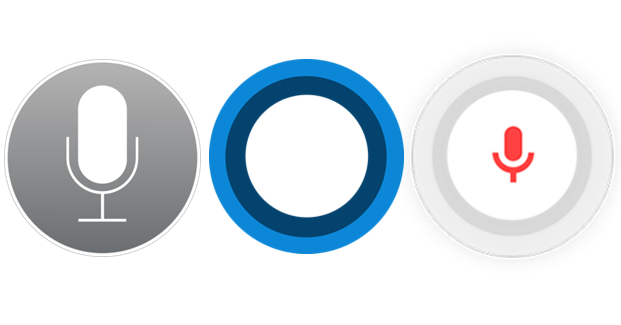As built-in intelligent personal assistants continue to carve out their share of the online search space, Siri, Google Now and Cortana are changing the way users search, and the way they get answers. To compete with the popular, eloquent Siri and the data-rich, intelligent Google Now, Microsoft is investing in expanding the reach and the services of its robotic assistant.
This month, Cortana became available on iOS, Android and the Windows 10 desktop and will be included in Xbox’s new dashboard update by early next year.
Implications for search
While Cortana on Apple and Google products doesn’t yet have access to as much information as it would on its native operating system, it will default to fielding searches exclusively through its proprietary Bing. Siri, on the other hand, sends searches through Google, Yahoo, Bing, Wikipedia and Wolfram Alpha.
Not only does Cortana search Bing, but it displays results in Edge, the new browser replacing Microsoft’s much-maligned Explorer. Edge’s default search engine is Bing. Once Cortana gets users into Edge, through Bing, it is increasingly likely that the more users use Edge, the more they’ll use Bing, and vice-versa.
Context for Content
Microsoft aims to catch up to Google Now’s intelligent contextual search by offering an on-tap search service. Cortana on the Windows desktop will “float” above documents and programs, offering contextualized assistance – think of it as a modern, less annoying Clippy.
Adapt and optimize
Investments in digital personal assistants from Microsoft, as well as from Apple, Google and even Facebook and Amazon, are changing how people search. As marketers, staying one step ahead of major search trends is crucial to remain optimized and visible. Here are three tips for keeping ahead of the curve, as search becomes even more personal, contextual and natural.
Content over keywords
For years, SEO strategies have been moving further away from keyword optimization. Instead, SEO techniques have begun to focus much more effort into creating contextual, relevant, high-quality content designed to match users’ semantics and search intent.
Optimization for conventional speech is crucial for helping mobile voice-searchers find you.
Reach globally, but stay rooted locally
Though assistants like Cortana are expanding to desktop, the vast majority of queries through intelligent personal assistants are mobile, which can mean searchers are on the go, and ready to make a purchase or take action. What can you do to ensure your business is as visible as possible?
Claim and verify your business address and local information in your listings. This can sync you with map services, increase your visibility for local searchers, and help to build trust as an established, indexed business.
Take advantage of customer review options. Assistants like Siri take ratings and reviews into consideration when ranking results.
Utilize schema markup
Markup gives pages SEO juice. Take advantage of schema markup to grant search engine parsers information about the meaning of your content. The more search engines understand your website, the better they can index it, and the better it will rank on intelligent assistants’ results.
While Microsoft’s expansion of Cortana to other platforms is majorly intended to continue increasing the company’s ad revenue in Bing (which finally became profitable this quarter), it doesn’t change the fact that search is becoming more contextual, casual and mobile. Staying current with how people search and what they want equips you with the strategies to deliver your message. For more about updates in SEO for user intent, you can read more here.





